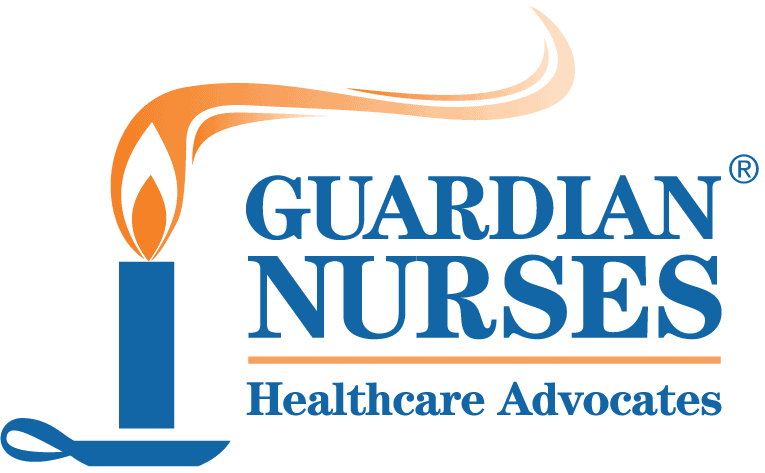Amidst last week’s anxiety about the election results and dire news about increasing COVID infections, hospitalizations and deaths, we were interviewing a candidate and asked her, “In your opinion, what is the most important skill a nurse advocate can have?”
Her answer came quickly and easily. “You need to be able to listen.”
Her rationale was compelling and gave us pause. As reference, other responses through the years have included resourcefulness, passion, confidence, clinical knowledge, energy, communication and leadership. All good answers in their own right, but perhaps her response resonated so uniquely because of all of the societal challenges we have seen, and continue to experience in this long, once-in-a-lifetime-year.
While listening is a critical skill to have in nursing, it doesn’t hurt outside of nursing either. I have learned to be a better listener throughout my adult life. When I was young, like all of my siblings, I would try to fix problems or situations that friends would share, but then, during a 20 year relationship, I learned to “just listen.” It was hard work but I am much more mindful now of allowing the person who is talking to finish. Interestingly, the letters that spell ‘listen’ are the same letters that spell ‘silent.’ Hmm….
I believe that we can all become better listeners especially now as social media impacts our willingness to even HAVE conversations!
Please enjoy this issue of The Flame. Hope you learn something that improves your relationships—or at the very least, your conversations at the Thanksgiving dinner table or Zoom get-together! Regardless of where or how you spend Thanksgiving, enjoy!
It has been a difficult year for many of our patients, our colleagues, our families and no doubt, you. And during these times of uncertainty and stress, we need more than ever to connect and feel listened to.
Many definitions of listening abound, but one that has stuck with me is that there are two kinds of listening. One is listening to respond–which is the more frequent and the one we encounter more often. It is also the least constructive and why arguments quickly escalate into violence.
The second kind is listening to understand and it is as rare as it is valuable. When we are capable of engaging with someone openly, with a willingness to understand their point of view, their situation, their doubts and worries, their interests and fears, their goals and the way that the problem compromises them, we become capable of contributing and, most importantly, of helping.
The capability to listen with empathy is all about being able to ‘put ourselves in a place of receptivity, from where we provide an emotional safe place for someone who needs to express their emotions and/or thoughts, who needs to get them out in the open.’ Nurses have lots of opportunities for listening with empathy. If we are going to be a more empathic listener, we have to fight these three main tendencies:
1.Listening without judging
This is the most difficult to avoid as we most easily fall into it. It is hard to receive information without feeling the urge to cast an opinion. And those opinions aren’t innocent or unburdened: they are heavily influenced by our own values, our own beliefs on what’s right and wrong, good or bad, the things we agree with and the things with which we disagree and disapprove.
But even if we do make our own judgments, we can keep them to ourselves. Interrupting someone when they’re sharing their feelings or telling their story cuts off the flow of that story and immediately distorts it so if you get the urge to interrupt, remind yourself you’re there to listen, not judge.
2.Listening without simplifying
Having the ability to recognize that a situation or problem is similar to others we’ve dealt with before gives us humans a huge advantage: we can save the time of analyzing, understanding and figuring out everything all over again.
Instead, we take what we’ve learned and apply it to the present situation. Done, solved, obstacle overcome, and with a minimum investment of time and energy. But that advantage becomes a huge disadvantage when we are there to listen.
Sometimes, when someone tells you about their problem, your brain finds a similar problem, and without you noticing, you put this new problem in that same box. On your side, what you seeis that you simplified a problem, you found a diagnosis, and you’re ready to move on with your day. On the other side, however, that person feels invisible; they feel that, along with their problem, you’ve simplified them. Putting a problem in a category is a way to depersonalize it. So, the best you can do when you’re on the listening side is to avoid simplification, to avoid putting their problem in a category. You’re not there to simplify, you’re there to listen.
3.Listening without solving
This is a tough one for me. The human brain is a fantastic problem solving machine, but not every problem requires a solution. A person that wants to talk about what’s going on with them doesn’t need you to provide a solution. They want you to listen. When you turn your focus to finding a solution, you can unknowingly turn your focus away from the person.
On the other hand, even those problems that do require a solution, generally require that the solution comes from the affected person. If a problem isn’t yours, neither is its solution. Sometimes, though, it can be tempting to become the author of someone else’s problems. After all, isn’t it easier to solve someone else’s issues than our own? Even though we can help and be there for the other person while they go through the process, the best thing we can do is to avoid proposing solutions. You’re not there to solve, you’re there to listen.
Being heard is an innate human desire. We have a deep-rooted need to feel connected, accepted and understood. Hopefully when you are given the next opportunity to listen to someone, you’ll be much more mindful about listening to understand.

